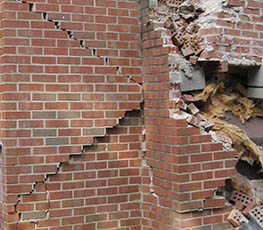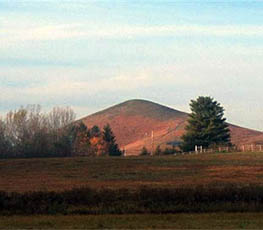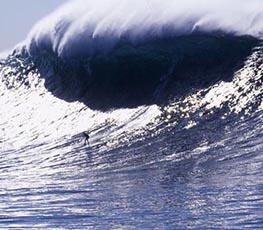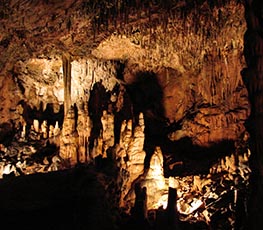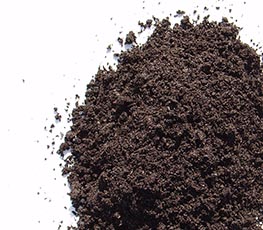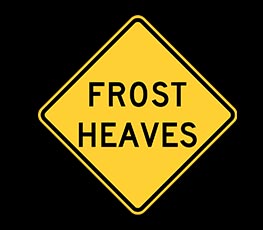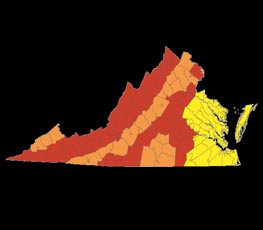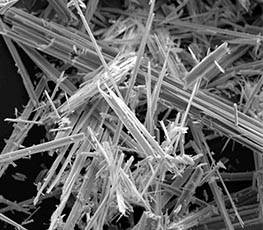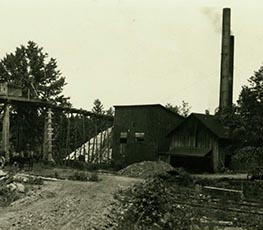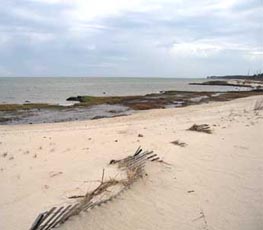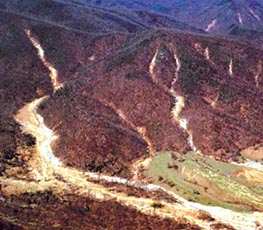The term “geologic hazard” encompasses a broad range of naturally occurring circumstances that pose a threat to human health, safety, and property. Some of these hazards occur as sudden and catastrophic events, while others are slow and insidious processes. Each depends on a unique set of geological conditions.
Extremely catastrophic events, such as volcanic eruptions or destructive earthquakes, are highly unlikely in Virginia, yet damaging quakes have happened here in the past, so a severe earthquake cannot be ruled out. Tsunamis have occurred in the Atlantic, although rarely, and little is known of their long-term frequency and extent. Some areas of the Coastal Plain could be at risk.
Clean drinking water is a fundamental concern of all societies, and areas of karst terrain, such as the Shenandoah Valley, are particularly vulnerable to water pollution via sinkholes and fracture systems. Some of Virginia’s soil and bedrock types contain sulfide minerals that can cause acidic drainage. Soils also may contain arsenic or other toxic metals which can leach into the water table or be taken up by food crops.
Local topography, bedrock, and soils are an important consideration when constructing houses, office buildings, shopping malls, highways, bridges, dams, pipelines, and parking lots. A primary concern is ground subsidence, which can proceed either slowly or rapidly, and in rare cases swallow entire buildings. Subsidence often occurs in karst terrain, but may also be related to mining activities or groundwater extraction. Expansive clays found in some soils can crack concrete foundations and buckle roadways, as can soils that are susceptible to frost heave. Radon, which is a carcinogen released from certain types of bedrock, can infiltrate basements and other confined spaces, while excavated asbestos poses potential respiratory hazards. All of these circumstances should be considered before breaking ground.
Virginia is regularly subjected to large tropical storms and northeasters, leading to significant loss of property and lives. Many areas throughout the western Commonwealth are prone to landslides, which are triggered by heavy rains. Eastern Virginia has over three thousand miles of tidal shoreline that are subject to coastal inundation and accelerated shoreline erosion, not only from violent storms but also rising global sea level.
The typical homeowner's policy provides protection against fire, wind damage, falling tree limbs, personal liability, and little else. Standard policies do not cover damage from catastrophic events such as earthquakes, flooding (including hurricanes), or landslides, nor do they cover slow damage caused by expansive soils or ground subsidence. Undoubtedly the best way to protect yourself is to avoid building or buying in a hazardous area. If you are in doubt, have an expert inspect the site.
